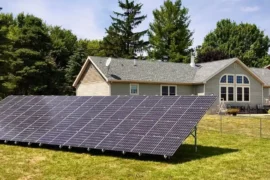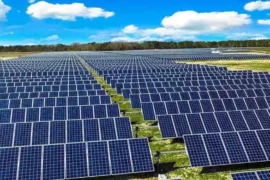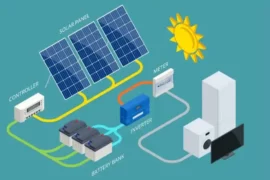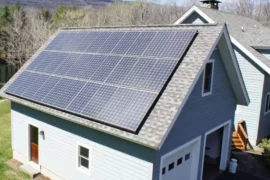Yes, solar panels do help to keep your roof clean. Indirectly they do it by shading the building and helping to reduce the heat. So if you are in doubt about ‘Will solar panel keep my house cooler”, then you are in the right direction. Keep reading to learn more about solar panels!
Do Solar Panels Radiate Heat?
Yes, solar panels radiate heat as they use both heat and light energy to produce electricity. The amount of heat is more in proportion to electricity, approximately 36 degrees Fahrenheit warmer than the environmental air.
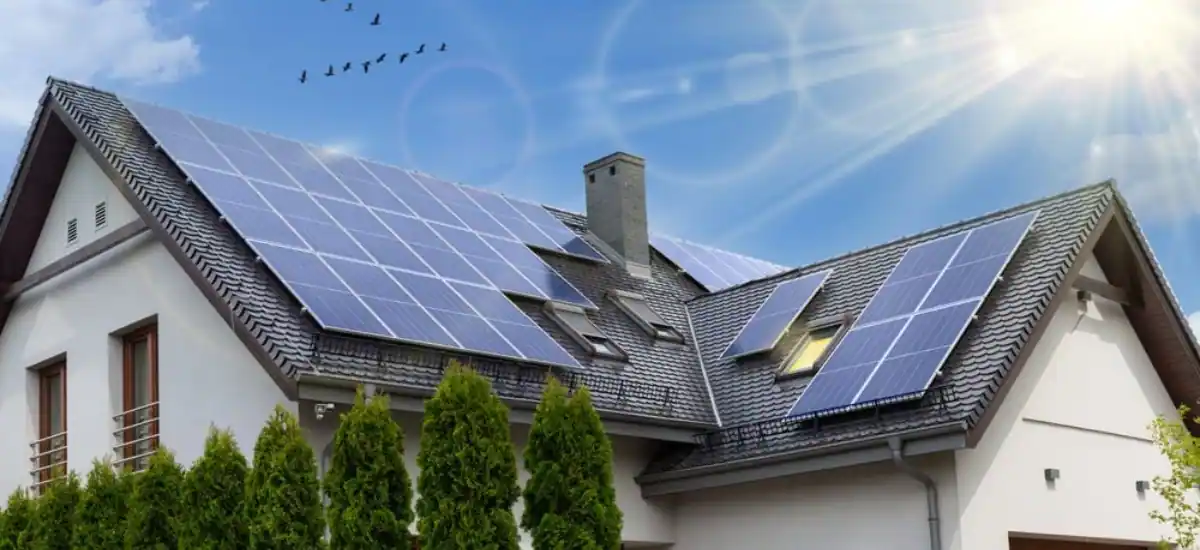
How Much Heat Does A Solar Panel Generate?
The output of a solar panel depends on various factors, such as its size, capacity, location, and weather conditions.
Generally, the domestic systems of solar panels have a capacity ranging between 1 kW to 4 kW. In today’s market, most residential solar panels are built to produce ranging from 250 to 400 watts each per hour.
What Is Solar Panel Insulation?
Insulation is a measurement of a certain area’s average solar radiation over time. Solar panels work best at temperatures between 15°C (59°F) and 35°C (95°F), however, the panels themselves can reach 65°C (150°F).
Temperature coefficients will be labeled on panels, indicating how quickly they lose efficiency as the temperature rises over 25°C (77°F). For every degree over 25°C, a panel with a temperature coefficient of -0.50 percent loses a half percent efficiency.
Do Solar Panels Soak Up Heat?
Yes, solar panels soak up heat. Although solar panels generate energy rather than heat, they do absorb heat, as one might anticipate from a device that functions by absorbing the sun’s rays.
Solar panels are designed to absorb as much sunlight as possible from the surroundings.
What Is Solar Cooling?
A technology that is used for the conversion of heat which is collected from the sun into useful cooling in appliances is known as solar cooling.
A thermally powered cooling process collects and uses solar thermal energy, which is then used to make chilled water or conditioned air for usage in the building.
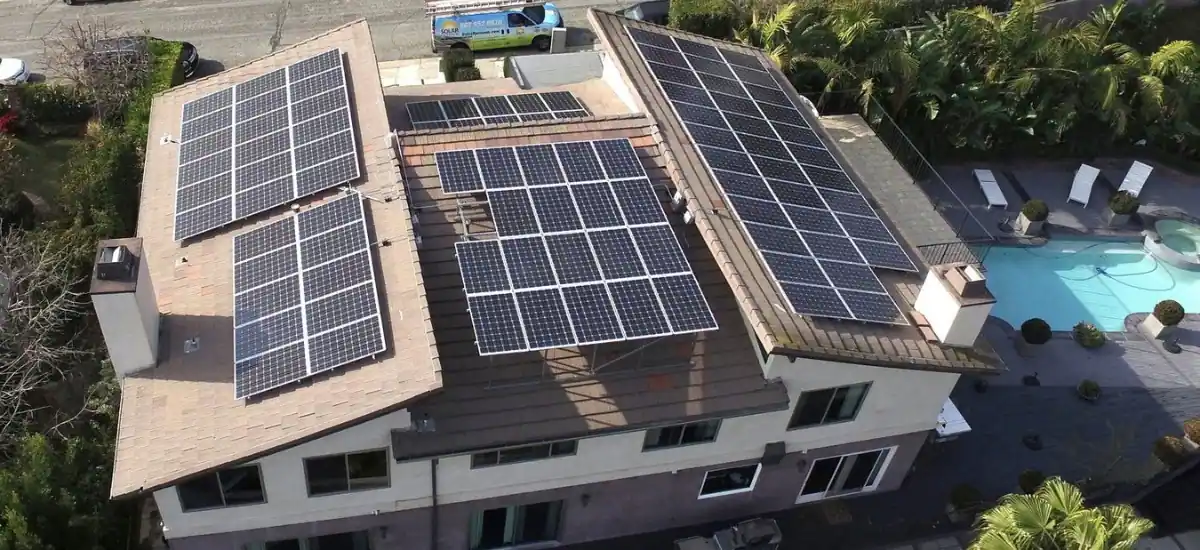
How Do Solar Panels Keep Your Roof Cool?
Solar panels follow the following mechanism to keep your roof cooler:
- Energy Conversion – Solar panels convert sunlight into electricity. The efficiency of residential solar panels is usually between 16 and 20% which means that 16 to 20% of the energy that strikes your solar panels is absorbed and converted into electricity, which is then transmitted away as DC by cables.
In other words, solar photovoltaic panels wick solar energy away from your roof, taking it away to power your dishwasher and television. This means that only roughly 80-84 percent of the remaining sunlight is capable of heating your roof.
- Reflectance – Your solar panels will reflect some sunlight, just like any other surface. Solar cells will still reflect some of the light that hits them, no matter how dark blue or black they are. Solar panels also feature a glass surface and an aluminum frame, which both reflect some energy.
- Emittance – A solar panel, like an asphalt roof, absorbs some of the sun’s energy and heats up as a result. Solar panels are dark, with some being purposefully constructed to be completely black. They can get rather hot, and some of that heat escapes into the atmosphere. Unfortunately, some of the heat is drained downward, potentially heating the structure.
- Convection through the air gap – A typical house solar panel system is installed on a roof-mounted racking system. The racking system keeps the solar panels several inches away from the roof surface. Air can flow through the gap created by the standoff distance. That breeze can transport heat away from the back of the panels and the roof surface, reducing the solar panels’ heat absorption.
Additional Advantages Of Installing Solar
Many of you might be keen to know what the additional advantages of installing a solar are. Here are some of the additional advantages of installing solar:
- Increased reflection of heat energy – In the summer, panels do not provide insulation, but they do have the same cooling effect as insulation. Despite turning dark blue or black and absorbing a lot of heat, solar cells will still reflect some of the light that hits them.
Solar panels are framed in aluminum and covered in glass, which reflects some of the energy into the atmosphere. As more energy is reflected off your roof, it will absorb less heat. As a result, the temperature of the roof and the building is reduced.
- Reduced thermal shock – In some areas, the temperature of your roof can reach dangerously high levels during the day and then quickly drop after the sun sets. Your roofing materials will expand and compress due to the significant temperature differences. As a result of thermal shock, this can cause warping and gaps between your roofing components over time.
Solar panels can assist in minimising thermal shock by keeping roofing materials from reaching dangerously high temperatures. The solar panels will also assist the roof retain some heat and minimise the rate at which the roofing materials cool once the sun sets.
Thermal shock will be reduced, extending the life of your roofing material and protecting the structural integrity of your roof. you should also read more about solar energy components.
- Reduced UV radiation – UV radiation can dry out the oils on your roof, depending on your roofing material. UV can induce bleaching and cracking, especially in wood products. Asphalt shingles are also susceptible to the same problem. These degrading effects take place over a long period, so you won’t notice them right away.
Your solar panels’ roofing materials will be protected from the elements and everyday UV exposure. Solar panels on your roof will not only increase the thermal efficiency of your building but will also provide clean electricity. It might also help your roofing materials last longer.
- Reduction in cooling costs – By limiting the amount of heat energy that strikes your roof, solar panels reduce the amount of energy you need to spend cooling the structure. Solar panels can enhance your building’s thermal efficiency, as evidenced by the comments above; but, results can vary depending on how your panels are placed and installed.
When installing and positioning solar panels, the most important consideration should be to create the best circumstances for optimal solar energy generation. Solar panels provide a renewable energy source while also cooling your roof and cutting cooling costs. To keep your home cool and pleasant, any electric cooling system can be fueled by the energy generated by your panels.
Frequently Asked Questions
Q1. Do Solar Panels absorb heat?
Solar panels that absorb heat are inaccessible. They heat up in the process of converting light to electricity. As a result, the solar panels heat up while producing electricity. If the panels are not properly cooled, they will heat up further, resulting in conversion loss.
Q2. How much heat do Solar Panels block?
The solar panel absorbs roughly 30% of the sun’s heat energy and re-emits half to the sky and half to the roof, which receives roughly 30% of the solar panel’s heat but only 5% of the sun’s heat (30 percent of 50 percent of 30 percent).
Q3. What are the two main disadvantages of Solar Energy?
Two Main Disadvantages of Solar Energy are as follows:
- Price – Purchasing a solar system is expensive at first. This covers the costs of the solar panels, inverter, batteries, wiring, and installation. Nonetheless, because solar technology is continually improving, it is reasonable to expect that prices will fall in the future.
- Weather-dependent – While solar energy can be collected on overcast and wet days, the solar system’s efficiency suffers. Solar panels need sunshine to collect solar energy successfully. As a result, a few rainy, overcast days can have a significant impact on the energy system. Solar energy cannot be collected at night. Thermodynamic panels, on the other hand, are a viable option if you need your water heating system to operate at night or during the winter.
Q4. Do Solar Panels work in winter?
Solar panels are effective in all four seasons, rain or shine, hail or light snow. However, during the winter, solar panels provide less electricity. Because the days are shorter and the sun is lower in the sky on average, there are fewer hours of daylight. On the plus side, solar panels function more efficiently in cold weather than they do in hot weather.
Conclusion
Do solar panels help to keep your roof cool? Yes! They provide clean, renewable energy while reducing the amount of heat that touches your roof. Solar panels are an excellent method to save money and reduce pollution by utilising clean, renewable energy. They also help you save money by increasing your building’s energy efficiency and lowering your heating and cooling expenditures.
Related Posts:- How Fast Does A Wind Turbine Spin?


